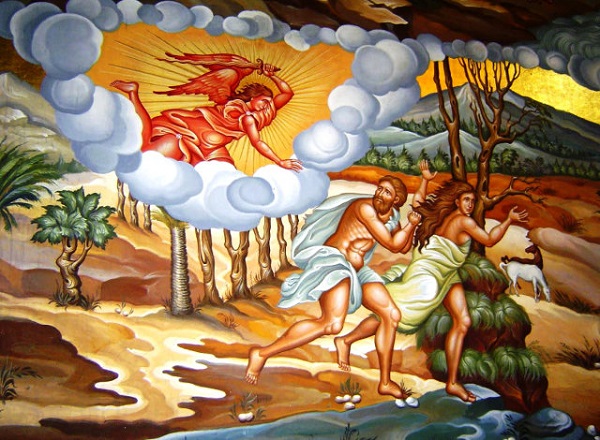Sunday of Cheese-Fare: are we ready to strive in the arena of the virtues?
25 February 2023We’ve arrived at the last Sunday before the start of holy and great Lent. As of the evening, the most penitential period of or Church begins.
In today’s Gospel reading, Christ speaks of three characteristics that are required of Christians:
First: ‘If you forgive others their trespasses, your heavenly Father also will forgive you; but if you do not forgive others their trespasses, neither will your Father forgive your trespasses’.

Second: ‘And when you fast, do not look dismal, like the hypocrites, for they disfigure their faces that their fasting may be seen by others. Truly, I tell you, they have received their reward. But when you fast, anoint your head and wash your face, that your fasting may not be seen by others but by your Father who is in secret; and your Father who sees in secret will reward you openly’.
And third: ‘Do not lay up for yourselves treasures on earth, where there is the moth and rust corrodes* and where thieves break in and steal, but lay up for yourselves treasures in heaven, where there is no moth nor does rust corrode and where thieves do not break in and steal. For where your treasure is, there will your heart be also’.
All the matters which Christ presents us with today have already been made apparent in the preceding Sundays:
The parable of the Publican and the Pharisee concerns our hypocrisy towards God.
The parable of the Prodigal Son deals with how God forgives us.
The parable of the Judgement tells us about generosity towards others.
The last sentence in today’s Gospel reading is ‘For where your treasure is, there will your heart be also’. Christ urges us not to garner earthly treasures but to collect those which don’t decay. All of us make an effort to acquire worldly goods in our life: a little money set aside for emergencies, a car, a house for our family.
Where’s the harm in that?
It lies in the fact that we’ve become attached to these things and think that life’s about houses, cars and money. We’ve given our life to them and now have no life left. We think that the most important thing is to find a good job, which will give meaning to our life. And we end up losing everything. What do we need to do? Should we have them in our life or not?
Obviously we need material goods in our life, to a degree, for the service and help they provide. But how can we free ourselves of our mistakes and our attachment to worldly goods?
The answer is provided by the Church during this period of holy and great Lent, on which we will embark this evening. It’s our spiritual opportunity to change ourselves. To escape from our ego, which is a catastrophe for us. Moreover, today’s the day when we commemorate the expulsion of our first ancestors from paradise.
But why did they leave? Was it because of the forbidden fruit they ate?
No, they left because of the disobedience they showed to God and their non-observance of his commandments.
So, throughout this period, we have the spiritual opportunity to prepare ourselves for the great feast of Christ’s Resurrection, by cutting off some of our passions and bad patterns of behavior.
Many of us, alas, will perhaps get no further than the fast itself and the propriety or otherwise of particular foods. But the fast is that spiritual provision which will bring us to the regeneration of the new person within us, far removed from the passions and sins.
‘The time has come, the beginning of the spiritual struggles’, we hear at the doxastiko for the day. May this period be an opportunity for us to acquire certain virtues and may we be deemed worthy to be crowned by Christ on account of the struggle we’ve waged. And ‘of the love you bear towards us, allow us also to venerate your passion and holy resurrection’.






